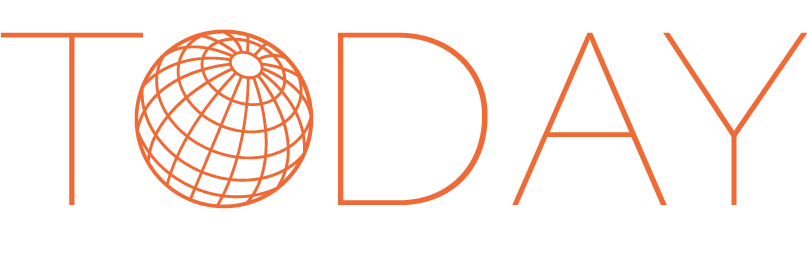Mobilising action to support healthy working lives in 2021.
Written by Dr Rob Aitken, CEO, IOM. December 8th, 2020.
It has been an extraordinary year, one of unprecedented challenge for the whole world. The economic, social, environmental and political impacts of COVID 19 have been overwhelming, the full effects of which will continue for many years. Truly, understanding and managing health risks has never been more critical than it is now.
For more than 50 years, IOM has led research into respiratory disease and how exposure to dusts, fibres and chemicals negatively impacts health. This year our research and workplace protection services have had a new focus, coronavirus. As the end of year approaches, I reflect on how the team at IOM have played a pivotal role to support and promote the health of workers during the pandemic.
But other health risks have not gone away. Beyond coronavirus, I consider the action we have been taking to support and manage other occupational and environmental health risks that cause thousands of premature deaths every year.
The disease burden upon essential workers
The pandemic has forced us to rethink our priorities about the real importance of key workers. We now recognise workers within the NHS, social care, education, delivery, and food retail as essential frontline workers. Many of these jobs have previously been underpaid and undervalued. We have witnessed a gallant response from frontline workers, working under pressures that no training could adequately prepare them for.
Professor John Cherrie, one of IOM’s most senior and influential scientists, wrote in September that ‘COVID laid bare occupational inequalities in our country. People living in socio-economically disadvantaged neighbourhoods and minority ethnic groups are disproportionately represented within lower paid ‘service’ sectors. Consequently, the jobs that require a high degree of interaction with the public carry a higher disease burden.’
Going forward, it is critical we continue to recognise the role of these essential workers and ensure that systems are in place to ensure that they are not unduly placed at risk.
2021 and safe workplaces
The UK has started administering a vaccine programme this week, the implementation of such a programme will no doubt bring many challenges. But before we pre-empt a post-COVID recovery, the WHO (World Health Organisation) has stated that no country is safe until all countries are safe. This statement leads me to consider what is it that IOM can offer to ensure people remain safe and healthy next year and beyond.
Ventilation as a viable control measure
The COVID-secure measures we have learned to live with will continue through 2021. Additional tools such as adequate and well-managed ventilation can play a role to facilitate the opening up of businesses and society. Simply opening doors and windows can improve the flow of fresh air. A well designed and operated HVAC system (heating, ventilation, and air conditioning) can provide further protection against COVID-19 airborne transmission. To help manage air quality through ventilation, you can speak to our ventilation experts or read a recent ventilation focused blog.
COVID-19 related research
Over IOM’s 50 year history, we have provided several groundbreaking studies linking lung disease to exposure to dusts, fibres and chemicals. With the advent of the COVID-19 crisis, our experience and expertise in understanding aerosol behaviour, aerosol and chemical exposures from inhalation and surface contact, exposure reduction potential of PPE, ventilation, and other control measures for making workplaces safe, were all highly relevant to assessing risk and helping workplaces during the pandemic.
Amongst our COVID-19 related work, we received national funding from Scotland’s Chief Scientist’s Office for a research project to investigate the presence of SARS-CoV-2 virus in the air or on surfaces in hospitals and the potential for transmission in this environment. The research aims to shed light on the relative importance of air and surface exposures and the effectiveness of possible interventions to protect healthcare workers effectively. From this research, we hope to apply learnings across many sectors.
Occupational exposure and neurodegenerative diseases
A key research area for IOM, beyond COVID-19, is to determine whether, and in what way, occupational exposure increases a person’s risk of neurodegenerative diseases.
Our research currently involves close collaboration with researchers from the London School of Hygiene & Tropical Medicine (LSHTM) and Queen Mary University of London (QMUL) and others in high profile studies of former elite rugby players and former professional footballers.
These projects will help policymakers and the affected communities understand whether there may be an association between playing these sports and reduced cognitive function later in life.
Finally, a thank you
To all our clients and partners, thank you for choosing IOM as your workplace protection partner of choice. Our business has endured the same economic pressures as most, but like many others, we have kept going. Our staff have adapted, found new ways of working and have made sacrifices to continue doing their jobs. It’s been a challenging year but I’m incredibly proud of their efforts to keep delivering the value that our clients have come to expect of us. The response from our annual customer survey echoed this sentiment; you can read more about our results here.
We hope you, your family and your colleagues stay safe and healthy over Christmas and New Year, and we look forward to delivering for you in 2021.
Wishing you a Merry Christmas and a safe and healthy New Year from the whole IOM team,
Dr Rob Aitken
Chief Executive

